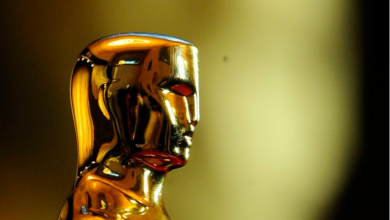In the mid 1940s, when prominent (though untalented) Egyptian actor Anwar Wagdy openly bragged to journalists about the famous actresses he had kissed in movies, it never caused a stir.
But when Actor Said Saleh appeared this month calling his onscreen kisses "beautiful,” a lawyer filed a suit against the ageing actor, accusing Saleh of supporting the Egyptian society’s debauchery.
Some critics argue that times haven’t changed that much, and even in Wagdy’s time showing kissing scenes was not that easy; Umm Kulthum, Egypt's legendary singer, for example, refused to be kissed in movies. But, generally, movies shot during that time period included scenes with kissing and a sexual content rampant compared to today's cinema.
Moreover, the ways in which actors, critics and audiences react to movies that include sexual content has changed dramatically, particularly since the mid 1990s when a new concept called “al-cinema al-nazeefa” (clean cinema), was introduced.
Today "clean cinema" is not a new idea, but the movies in this category, along with their popular counterparts, offer no room in Egyptian cinema for films of real quality.
In a recently published book, "Clean Cinema,” journalist Mahmoud al-Otaify explains that the concept was established to address high-quality Egyptian movies and today "clean cinema" mostly refers to films that are sex free.
“Youth cinema” can be traced back to 1997, when a film called "Ismailia Rayeh Gay" (Ismailia Back and Forth), a poor movie both in production and content, surprisingly shot to the top of the Egyptian box office. It started a new trend of cinema devoid of kisses and any sexual content; movies of this nature have since been some of the most popular in the country.
Al-Otaify suggests that then-President Anwar Sadat (in office from 1970-1981) had something to do with this trend, because, in political conflict with the leftist and secular opposition, Sadat released and supported members of radical Islamic groups, who had a conservative influence on popular culture.
But determining the impact of this conflict between leftists and Islamists on cinema is not that simple.
Critics argue that the early 1970s witnessed a rise in highly political movies that attacked the Nasser regime (1952-1970). The cinematic boom reshaped Egyptian cinema by making room for entertaining movies, and establishing cinema as a main element in the popular culture.
Movies such as 1972's “Khalli Balak min Zouzou” (Keep an Eye on Zouzou), starring Soad Husni, and other popular movies of the time, had abundant dance scenes and sexual content. Leftist critics labeled such cinema as “cinema al infitah” (open door cinema).
“Clean cinema," and its relevant slogans such as "family cinema,” surfaced in response to the needs and demands made by the emerging conservative Egyptian middle class who, with the rise of ticket costs in the last ten years, have become the core audience.
Since 2001, these movies have generally achieved greater financial success than the older, more open movies starring the “old guard” of cinema.
But, according to al-Otaify, “clean cinema” is not the sole trend in the industry; the writer also discusses movies that represent a different trend, such as those starring the prominent actors Adel Imam (part of the "old guard") and the young Mohamed Saad.
Imam, one of Egypt’s most beloved actors, has starred in at least ten movies since 1999, in spite of the rise of “clean cinema.” The vast majority of these movies include women in scant clothing acting in a very seductive manner, such as actress Wafaa Amer in 1999’s “Al-Wad Mahroos Betaa al-Wazeer” (Mahroos, the Minister's Guy), Nicole Saba in 2003’s “Al-Tagroba Al-Danemarkeya” (The Danish Experience) and Youssra in 2009’s “Bobbos.”
Actor Mohamed Saad, whose movies are some of the highest grossing Egyptian films, with revenues exceeding LE20 million, stars in roles that break many social taboos. Saad plays characters that are stoned and drunk, many of who are criminals.
Those movies certainly do not represent “clean cinema.” Still, because they are popular in part for offering a direct alternative to “clean cinema,” they collaborate with their scrubbed counterpart in monopolizing the industry, leaving no room for what al-Otaify considers "good movies"–films with quality content and ideas which, because of the industry trends, find themselves with no marketing or production.
Mostafa Zeckery, considered one of Egypt’s best screenplay writers, is quoted as saying that different writing styles, ones that veer from the formulas, are not welcome in Egypt cinema.
Mohammed Hassan Ramzy, a main distributor of movies in Egyptis presents clear evidence of the obstacles that different forms of cinematic writing that differ from "clear cinema." Ramzy, for example, one stated that he "didn't understand" the movie “Arak al-Balah” (Date Wine). The 1998 movie, directed by Radwan al-Kashef, received more than 25 awards from different film festivals and some critics consider it to be one of the best movies in the history of Egyptian cinema.
In spite of its worldwide acclaim, “Arak al-Balah” failed in finding distribution in Egypt. Similar fates awaited other talented directors, like Raafat al-Meehy, Daoud Abdel Sayed and Mohamed Khan.
“Clean cinema,” in dominating the market, threatens the success of “good and artistic movies,” and, in doing so, Egyptian cinema as a whole.




